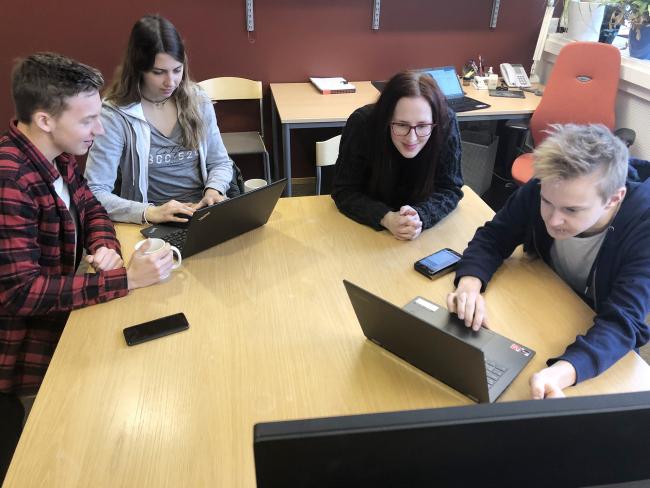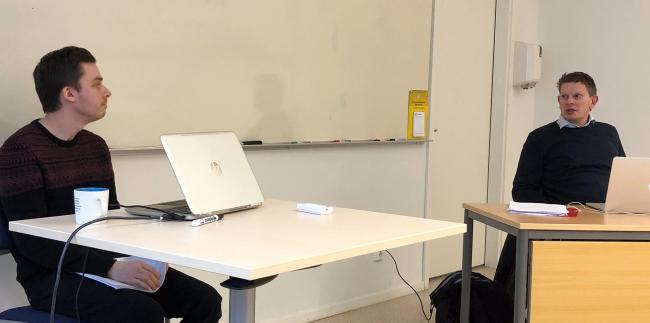Full speed ahead in Ozlab
2019-04-08The usability lab, Ozlab, has been frequently occupied this spring, among other thins for eyetracking-surveys, updating of the manual and introductionfilms.
From the latter half of January we had two German students as internships for 10 weeks, Antonia Appel and Jakob Kümmerle, from DHBW, Duale Hochschule Baden-Württemberg. They helped students conducting various projects on undergraduate and master level with eyetracking equipment. Also the Swedish Consumer Agency were doing pilot studies with their help in the usability lab this spring. Our interns also helped master students who use the Ozlab system to make interaction experiments as well as improving the Ozlab manual and Ozlab introduction films. They also helped research student Malin Wik with investigations into telco software to use in conjunction with Ozlab-based experiments “in the wild” with mobile phones (that is, extending the GUI-ii methodology). This mobile employment we started to explore in autumn 2018 during a usability testing course.
Students' thesis help developing Ozlab
Master student Tobias Bernström completed a Research Project in Information Systems by making a small prototype for an Ozlab client to run on mobile phones (instead of using web browsers which have rather restricted access to mobile phones).
Erika Norén Person defended her Bachelor thesis, where she conducted distance testing of a design for an educational module connected to the CriseIT project. With the help of her supervisor, Professor John Sören Pettersson, she arranged an Ozlab shell and without any previous experience in Wizard of Oz or Ozlab, she managed this Ozlab shell where Swedish crisis managers could get familiar with using a Swedish-Norwegian wordlist with crisis terms. She and the professor never met, but all training – a couple of hours – in shell editing and wizard-controlled testing was made on distance (with screen sharing on top of the Ozlab screen sharing). Professor Pettersson then supervised without interfering the first three test sessions she had with people in Karlstad. In all, she conducted 11 sessions in the Karlstad region from her home in southern Sweden.
Read Erika Norén Persson's thesis here
Erik Framner, who have worked in EU projects Credential and especially in PrismaCloud, presented his Master Thesis in February, “A Configuration User Interface for Multi-Cloud Storage Based on Secret Sharing. An Exploratory Design Study”, which is a 100 page piece that builds on his experience from Archistar in PrismaCloud. Opponent was Henrik Svensson, PhD, Deputy Head of Division, School of Informatics, University of Skövde.
Read Erik Framner's thesis here




